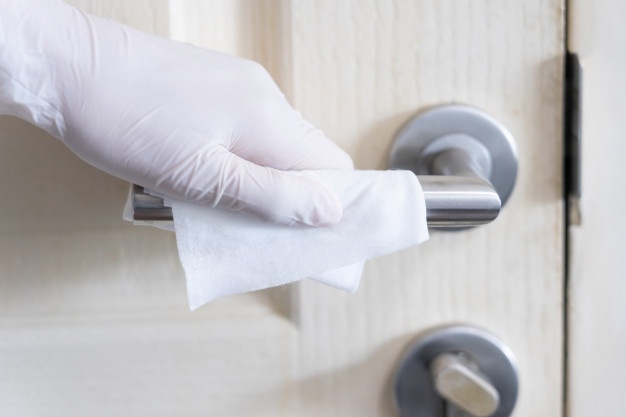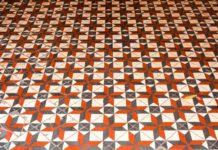How exactly can you keep your home germ-free when germs roam so freely?
Probably one of the most disturbing details to recently emerge about COVID-19 is just how long the virus can live on surfaces. Another scary thought? The fact that an estimated 42% of us aren’t even cleaning those surfaces properly.
This is all particularly unsettling considering that highly trafficked places like grocery stores and gas stations are teeming with germs, and now you run the danger of bringing it all home with you—on your clothing, your bags, your phone, and more.
Here’s everything you need to know to keep your home germ-free at the height of the outbreak.
How long the virus survives—and where it thrives
The novel coronavirus can survive on surfaces anywhere from hours to days.
The latest information is that it can last 24 hours on cardboard, 48 to 72 hours on plastic, and 48 to 72 hours on stainless steel.
The duration also depends on a few other factors, like temperature and whether a surface is prone to holding moisture.
Wooden handles, for example, are more likely to be damp than metal under normal conditions—and damp conditions can enable many infectious agents to thrive. Furthermore, a warm room is more favourable for many pathogens than a cold one.
Regardless of what kinds of temperatures and surfaces you have in your home, there are things you can do to keep these dangerous pathogens at bay.
Ditch germs at the door
Unwanted germs are getting into your home the same way you are: through the front door. By taking a few precautions in your entryway, you can keep your home germ-free.
Disinfect things immediately after they come into the home. Especially if you’ve gone outside or brought in any food or packages.
Kick-off dirty shoes at the door, wipe down any bags and add a trash bin near your entryway for paper or plastic packaging that may have been exposed.
Remove dirty clothes immediately
Ditching dirty packaging isn’t the only thing you should shed at the door. After all, you wouldn’t want to forget about the germs you might be wearing.
Its recommend putting clothes directly into the hamper immediately upon entering the home since the coronavirus lives on fabrics and porous surfacest. Do not shake dirty laundry before washing—to avoid self-contamination—and wash it in the warmest possible water.
Start a clean-hands routine in the entryway
You’ll also want to get in the habit of disinfecting your hands (and phone) whenever you get home.
For example, you can create a station with a table with hand sanitizer and lotion, alcohol wipes for phones, and a small garbage can. Moreover, make sure as your kids walk in the house, they know the protocol before they start touching everything.
Trap particles before they spread
Another way to keep germs from getting in? Use doormats in high-traffic areas—and vacuum them frequently.
Many people think that bare floors are cleaner than carpet, but dust, allergens, and dirt particles settle on hard surfaces and get stirred back into the air more easily the next time there’s an activity in the room. Rugs placed on these surfaces act as filters, trapping particles until it is time to vacuum.
Focus on cleaning high-touch surfaces
Before you go to town cleaning every last surface in your home, take a moment to assess which ones need it most. According to the experts, you’ll want to focus on high-touch surfaces above all else—since keeping those clean will stop the transmission of germs to other areas of the home.
High-touch surfaces include all the things you touch the most—like doorknobs, light switches, cabinet pulls and handles, railings, faucets, remote controls, and even tabletops.
Use effective cleaning products
When it comes to actually cleaning these areas properly, make sure you’re using the right products.
When killing surface germs or viruses is your goal, look for products that contain a disinfectant.
Some of the more frequently used active ingredients are sodium hypochlorite, ethanol, pine oil, hydrogen peroxide, citric acid, and quaternary ammonium compounds.
Or
Your JIK and Dettol.
Content provided by Kenya Homes is for information purposes only. Visit the WHO website for more details on keeping your home covid-19 free














